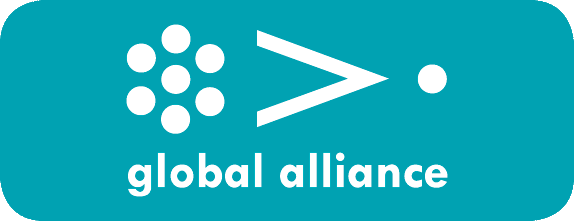PR Education has and always will be paramount to the profession of public relations
Throughout history practitioners of Public Relations have skilfully met the requirements of communication engagement by using apt tools and techniques whilst traversing the challenges of technological and societal change. As practitioners, we know meeting organisational communication objectives is an important but difficult art, as stakeholder engagement is a complex science which substantiates the fundamental need for education. It’s the same with any profession. As a result, the communications industry through self-regulation and evaluation holds itself on a formidable platform with education and continuing professional learning being the key to this positioning. PR education ensures that standards are maintained, regulated and updated to meet both academic and industry based practices.
Our President, Justin Green, and his international experienced team at the Global Alliance for Public Relations and Communication Management have followed an important industry led mantra where education is concerned. Whilst there are many to compare too, one that does come to mind is a quote from Professor Anne Gregory, a CIPR President who led the Institute of Public Relations through their Charter process in 2004: “Organisations are being forced to re-think their purpose and how they gain and maintain their legitimacy not only with their immediate stakeholders, but to society more widely.”
The work and effort that led to the decision by the Global Alliance to introduce a globally international educational accreditation scheme this year, is undoubtedly the result of an erstwhile evaluation process filled with foresight and experience. I have no personal doubt that the results of this decision will be one of the greatest assets for our profession throughout the coming decades.
PR Education is available at three levels by three relatively distinct players: universities, professional industry bodies and corporate training organisations with each having a different but yet cohesively pivotal industry role. Firstly we have University programmes which are generally based on the academic aspect of PR supported in principle by invaluable internships followed by professional industry body courses which are targeted and suit those who have commercial experience in a range of sectors and finally, there are the professional corporate training organisations which specialise in providing niche training programmes or upskilling opportunities. The comparative links with all three are the industry standards combined with experienced tutors / academic trainers.
In practice, each member of the Global Alliance facilitates and provides PR educational programming and the standards of which have served our industry well, being set out and governed by codes and articles of the member organisations.
With the introduction of the Global Alliance for Public Relations and Communication Management’s accreditation scheme, it has provided the opportunity for PR education to unify and present an internationally recognised platform to all organisational and practitioner stakeholders let alone giving candidates a global practising passport.
This intuitive introduction could not have come at a more appropriate time. The Pandemic has thrown many organisations a curve ball. Stakeholder engagement with customer or consumer, employee or investor, financial or government has never been more important and indeed critical. Professionally qualified communicators are the catalyst for leveraging innovative engagement campaigns that may be the difference between failure and success, profit or loss, closure and remaining open.
Many organisations have had no alternative but to draft in teams to deal with the scenario. As with any predicament some organisations have had no choice but to use staff to bridge the lack of qualified resources. In essence, PR education has never before had a better opportunity to excel and to position itself within the global market. This is a catalyst and defining moment, albeit an extremely unfortunate one, as a result and in response to the wisdom of the Global Alliance’s accreditation decision.
The PR industry strives on qualified people running the show. They have the momentum and collaborative skills, based on their training and experience, to guide their organisations and or clients as to how best strategically engage. Of course, it’s not just the pandemic that communicators need to wrestle with but also the ongoing issues of reputation management and all the other specialisms that remain high on the agenda stemming from the macro environment: the political, economic, social, technological, environmental and demographic conundrums that are still very much in existence.
Change is one of life’s guaranteed constant and it too highlights the importance of PR education and training. Moreover, PR education offers a silver lining for many who may have to chart a new path forward due to the pandemic. PR education has assisted many journalists successfully transition into PR at a time when the survival of many media outlets was being challenged by economic survival over the last decade. Hence why now the PR industry maybe a silver lining for many others who have to transition and find new career paths.
The emergence of this globally accredited educational scheme offers so much opportunity to any willing candidate. International recognition and accreditation of PR qualifications by the Global Alliance for Public Relations and Communication Management fits perfectly with global online mobility in this new norm of remote working. There are no constraints and the global foresight of this educational initiative is where nurtured minds can be stimulated and futures shaped.
Eugene Grey is President of the European Institute of Public Relations and Director of Studies at the European Institute of Communications based in Leuven, Belgium and Dublin Ireland. He has been a PR practitioner for three decades and has been involved in PR education since 1992.

